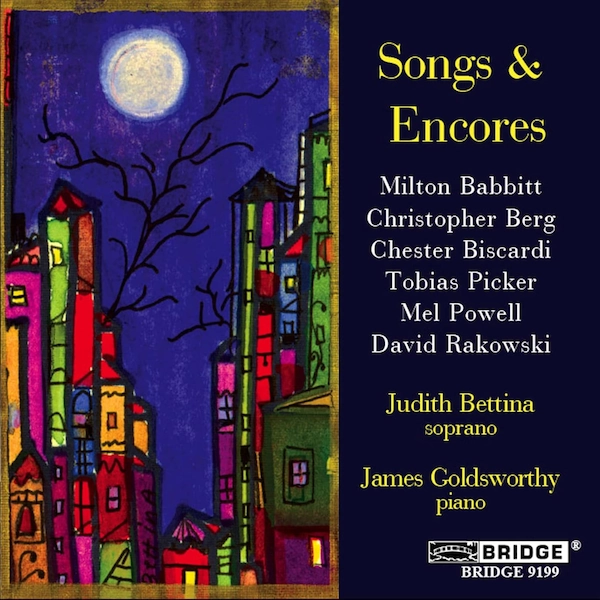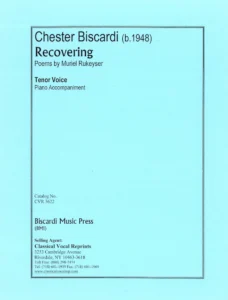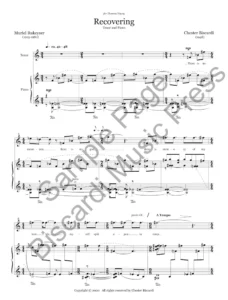Program Notes
Recovering was written for my friend, Thomas Young, in memory of his wife, Marilyn Helinek. It is a setting of two poems by Muriel Rukeyser, including two lines from “The Poem as Mask: Orpheus” and the entirety of “Recovering”. The second poem is framed by a musical quotation which brings out an inner voice and modifies the opening of J. S. Bach’s chorale, Es ist das Heil uns kommen her (Now is to Us Salvation Come).
Jan Heller Levi, in A Remembrance of Muriel Rukeyser (1913-1980) published in the Sarah Lawrence College Bulletin May 1980, wrote that “Muriel, like no one else, proved to us that recovery—recovery of what has been lost or what has been denied us—is the true work of poetry and of our lives.”
Text
. . . There is no mountain, there is no god, there is memory
of my torn life, myself split open in sleep . . .
Dream of the world
speaking to me.
The dream of the dead
acted out in me.
The fathers shouting
across their blue gulf.
A storm in each word,
an incomplete universe.
Lightning in brain,
slow-time recovery.
In the light of October
things emerge clear.
The force of looking
returns to my eyes.
Darkness arrives
splitting the mind open.
Something again
is beginning to be born.
A dance is
dancing me.
I wake in the dark.
Copyright © 1994 by William L. Rukeyser.









